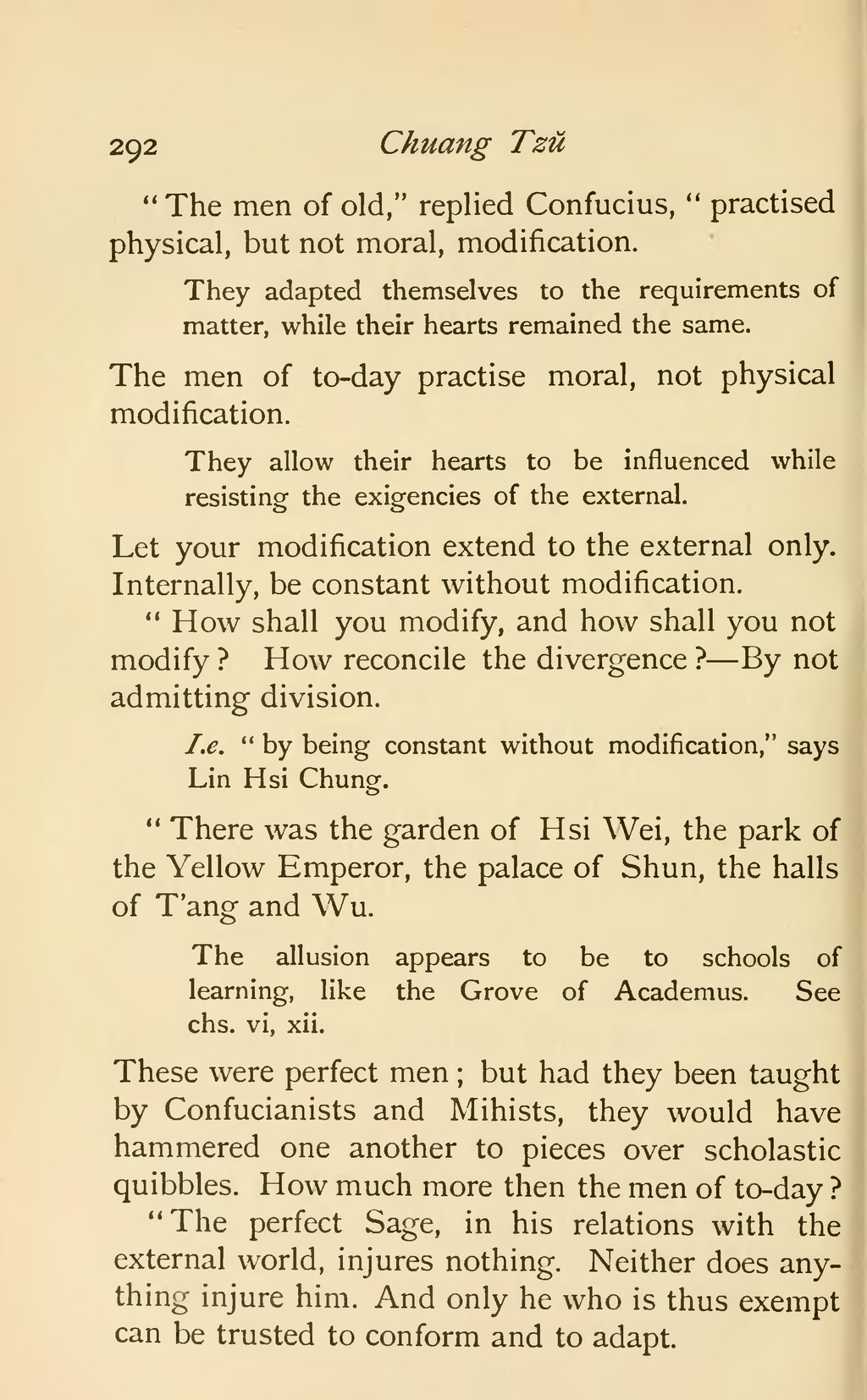"The men of old," replied Confucius, "practised physical, but not moral, modification.
- They adapted themselves to the requirements of matter, while their hearts remained the same.
The men of to-day practise moral, not physical modification.
- They allow their hearts to be influenced while resisting the exigencies of the external.
Let your modification extend to the external only. Internally, be constant without modification.
"How shall you modify, and how shall you not modify? How reconcile the divergence?—By not admitting division.
- I.e. "by being constant without modification," says Lin Hsi Chung.
"There was the garden of Hsi Wei, the park of the Yellow Emperor, the palace of Shun, the halls of T'ang and Wu.
- The allusion appears to be to schools of learning, like the Grove of Academus. See chs. vi, xii.
These were perfect men; but had they been taught by Confucianists and Mihists, they would have hammered one another to pieces over scholastic quibbles. How much more then the men of to-day?
"The perfect Sage, in his relations with the external world, injures nothing. Neither does anything injure him. And only he who is thus exempt can be trusted to conform and to adapt.
